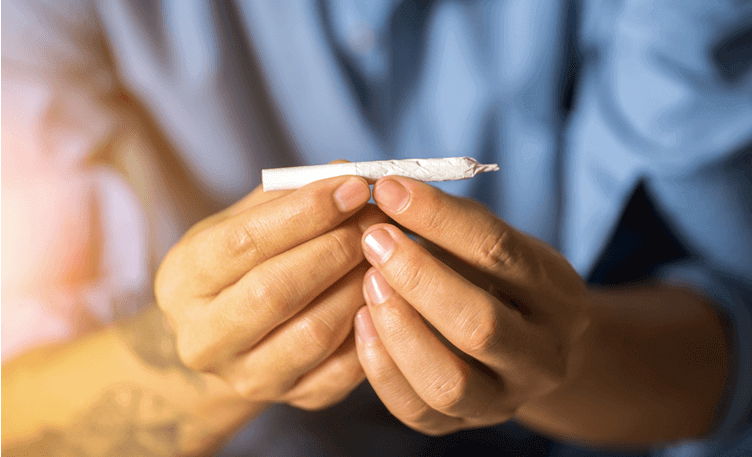When A Loved One Has Addiction - Coping Strategies

India’s youth (15-24-year-olds) makeup about ⅕ of the population, and carry with them the responsibility to determine the country’s moral, political, and social persuasions. As the drug epidemic in India continues to soar, it naturally trickles down to our younger generations. How do we, as educated and informed adults, then help our youth get out of substance addiction?
What Is Addiction?

According to the WHO, the term addiction, now referred to as “dependence” is a term used to define psychological and physical habituation with a range of drugs. The most common drugs abused by the youth in India are Opium, Alcohol, Cannabis, and Propoxyphene.
Substance dependence, also known as the dependence syndrome, is characterised by an intense desire to consume psychoactive drugs, alcohol, or tobacco.
One may not realise when recreational drug use might become drug abuse and turn into dependence. Therefore, it is important for us to keep an eye out for certain signs and symptoms in our loved ones and curb the habit before it becomes a menace.
How Do Drugs Affect Your Brain?
Drugs are chemicals that can enter our brain (either by smoking, eating, injecting, or inhaling them) and mimic the brain’s communication system. They tamper with the way our nerve cells receive, process, and send information.
Different drugs, based on their chemical composition, can imitate the brain’s natural chemicals and overstimulate the reward circuit in our brain. Normally, our brain’s reward circuit releases dopamine- our body’s reward-inducing chemical when we perform pleasurable activities. Drugs take control over that reward system. Repeated use of drugs gets the brain adjusted to the surges of dopamine, and people feel like they need to have more drugs to feel better or “high”.
However, they don’t act like the body’s natural messengers and end up sending abnormal messages to our brain and leads to complications in our brains and bodies.
How Do You Know A Loved One Has An Addiction?

Parents, friends, and elders should be alert and watch out for the following signs in their loved one to know if they are addicts or not.
- Reduced interest in studies/work
- Lack of interest in physical or recreational activities
- Carelessness and lack of focus
- Constant fatigue, irritation, sweating, and involvement in fights and arguments
- Pessimism and involvement in unethical activities like stealing
- Loss of appetite and sudden weight loss
- Excessive sleeping hours
When a person is addicted, it can become extremely difficult to communicate with them and help them get out of their habits. However, it is not impossible. Let’s look at a few coping measures you can take to help your loved one get over his or her dependence.
Coping With A Loved One With Addiction
Below are some tips and coping skills that are helpful while you’re living with someone with an addiction.
- Educate Yourself First
Addiction is a chronic illness, just like Cancer or Diabetes. It is not a question of morality or willpower. Reasons for addiction depend largely on genetic and environmental factors and addicts don’t choose to become an addict - just like how you’ll not want to live with cancer or tumour.
Addiction is a brain disease - it is caused due to chemical changes in the mesolimbic dopamine system of our brains - which is essentially our brain’s pleasure centre. When addicts consume drugs repeatedly, it overstimulates their pleasure system and they lose their ability to control their cravings.
- Join Support Groups

- When a family member or loved one is going through a phase of addiction, it can become quite a challenging task to cope with them all alone.
- Therefore, it is important to surround yourself with others who have gone through a similar experience. This will help give you insights on coping strategies, and not make you feel isolated.
- Don’t Be An Enabler
- Detachment with love - a concept which means caring for or loving someone just enough to learn from their mistakes and rectify their behaviour.
- If someone in your family is struggling with addiction, more often than not, we tend to hide it from others and give in to the addict’s demands in fear of not hurting them. This makes us “enablers” - encouraging dysfunctional behaviour. This leads to them manipulating you to let them have their way with drugs.
- Learning and practising detachment with love is one of the first steps to helping someone cope with addiction.
- Attend Family Therapy

- Getting professional help as a family can have a lot of benefits, not only for the person with an addiction but also for your wellbeing and understanding of each step to take.
- Meeting with a therapist helps families communicate better with each other, and give them a safe environment to express their feelings and concerns. It will make you handle the situation together as a family, and alleviate feelings of isolation.
- Encourage Total Abstinence
- For a person dependent on substances, even small amounts can make symptoms worse and trigger a relapse. The nature of addiction does not permit “controlled” use of drugs, making it impossible for addicts to limit their usage. Total abstinence is perhaps the best way to begin the deaddiction procedure.
- Let them know that you strongly believe complete abstinence is the key to recovery
- Ensure they stay away from drugs and people or situations that can provide drugs
- Help them make a new, sober group of friends and indulge in recreational activities
- Help Them Build Good Coping Skills

- Discuss with them about stressful life events or situations that trigger the use of drugs. Teach them to devise coping strategies and solutions to life problems rather than running away from it using drugs. You can help them cope with stress by:
-
- Listening to them patiently and talking to them
- Helping them solve problems practically
- Reminding them every time of the solutions before they reach out for the drugs
- Know the Signs of a Relapse
- Each person’s addiction is handled differently, and symptoms or “red flags” of relapse are unique to every individual. Relapse is more of a process that can be divided into 3 stages - emotional, mental, and physical. Recognising the warning signs early on can help prevent a relapse. Here’s what you should watch out for:
-
- When the person starts romanticising or reminiscing about the days when they felt good using the drugs
- When the person starts isolating themselves from their sober peer group or stops participating in the new routine
- When the person starts doubting the effectiveness of the recovery process
- You can help the person from relapsing by:
-
- Recognising the early warning signs
- Monitoring changes in their behaviour
- Developing a plan in case of an actual relapse
- Talk to the therapist about your concerns and work on it together
- Always Let An Addict Know Your Limits
- You can’t help someone if you don’t keep yourself healthy, both physically and mentally. Therefore, it is important to set boundaries and practise detachment with love early on to let them know.
- Engage yourself in relaxation techniques like meditation and yoga, and talk to a personal therapist to ensure your mental well being is taken care of.
If you’re living with someone with an addiction, it is important to discover coping strategies together as a family and be active in self-care. Being educated and relearning healthy patterns are all imperative to handle both active addiction and active recovery phases.






